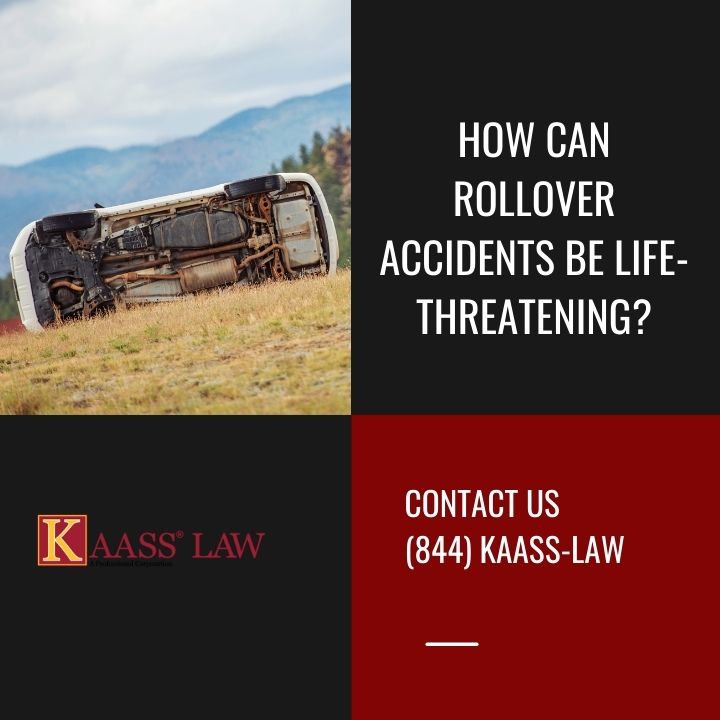A rollover accident is when a vehicle’s momentum causes it to turn over. Rollovers can result in catastrophic injuries that can be life-threatening. Rollovers are more likely to happen during the winter months because of low tire pressure, black ice, and wet roads. Nobody expects their automobile to flip, and there are few things to be aware of if it does.
Are Rollover Accidents Common?
While any vehicle can roll over, vehicles with a high center of gravity, such as SUVs, pickup trucks, and vans, are far more likely to do so. The majority of rollovers are “tripped” rollovers, which occur when the vehicle is destabilized by an external force. A vehicle can be tripped in a variety of ways, including:
- A rapid spike in horizontal force caused by encountering a curb or other solid object.
- A collision that forces one side of the car upward, such as a glancing impact with another vehicle or hitting the guardrail’s turned-down end portion.
- Getting through a ditch, a hill, or uneven terrain. The higher the incline, the more probable a car may flip.
- A high-sided vehicle, such as a van or truck, can be blown over by strong winds. This is frequent on exposed bridges and coastline highways.
What Are The Common Causes of Rollover Accidents?
Rollover accidents are among the most dangerous types of automobile accidents. Although rollovers account for a small percentage of all passenger vehicle accidents, the consequences can be fatal. Common causes of these types of accidents include:
- Driving at excessive speeds
- Distracted driving
- Drunk driving
It’s important for drivers to know how they should react if their vehicle begins to roll over so they can make sure they get out safely.
Rollover accidents frequently result in partial or complete ejection of the vehicle’s occupants, increasing the risk of catastrophic and fatal injuries. So, what causes rollovers? A number of these accidents happen when a driver loses control of their vehicle and it begins to slide sideways. When this happens, an object such as a curb, guardrail, or uneven ground could cause the vehicle to roll over. Rollover accidents can also occur when a driver attempts to turn the vehicle quickly. The friction between the road and the tires in such cases may cause the vehicle to tip and roll over. Rollovers involving multiple vehicles are also common. This is where one vehicle may collide with another.
Who Is Responsible In These Accidents?
A car manufacturer is frequently held liable for a rollover accident. Some vehicles are built in such a way that they are highly susceptible to rollovers. Individual vehicle components may also contribute to a rollover; for example, poor tires might make it much simpler for an impediment to create a “tripped” rollover. Furthermore, even if the rollover was not caused by the manufacturer’s negligence, the injuries incurred in a rollover may be the result of the manufacturer’s negligence. In the case of a rollover, a vehicle’s roof should be constructed and reinforced to protect the occupants; if a manufacturer skimps on safety, the people involved could suffer far more serious injuries.
Of course, the driver of the rollover vehicle’s irresponsibility may also be taken into consideration. Whether it’s driving at a hazardous speeds or driving while intoxicated, rollovers may result. Liability may also be from companies or governments who are in charge of upkeep in the roads. Another liable party may be the driver. Driving at high speeds or intoxicated may also be the cause of such accident. The driver’s seatbelt should always be worn for safety reasons; wearing one may prevent an injury from happening if there is a rollover or collision with another car or object.
Contact A Los Angeles Attorney Today
We are familiar with the complicated legal concerns that arise in rollover accidents. Your life may have been altered by the accident, and you may face new challenges in the future, but you do not have to face them alone. Hire a law firm that understands how to deal with your case. Please contact us at 310.943.1171.

